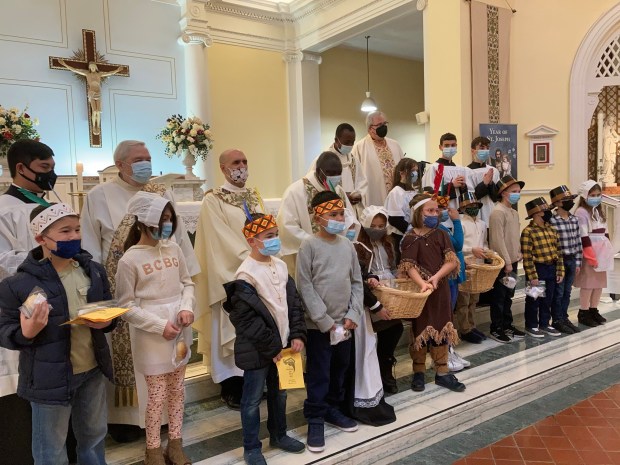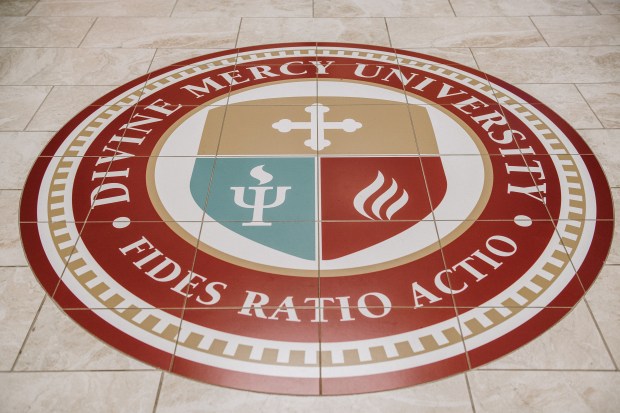Fr. Arthur Mastrolia enrolled in Divine Mercy University (DMU) for an MS in Psychology with a mission: He wanted to learn more about recent developments in the psychological sciences to help him in his priestly ministry.
As he progressed in the program and reflected on what he experienced in parish life, the Staten Island priest became convinced of the enormous influence parents have on their children when it comes to their spiritual and psychological well-being -- especially in a child's earliest years.
"So much of who we later become in life -- psychologically and spiritually -- is influenced by the environment in which we've been raised as children, and the ways in which we've learned (for better or worse) to think and therefore to feel," Mastrolia told Aleteia. "In this regard, our parents exert a tremendous influence."
For his graduate degree capstone project, Matrolia decided he would focus on the period of parental catechesis in preparation for infant baptism. He called it "The Miracle of Life – A Baptismal Preparation Program for New Catholic Parents," and it has since been implemented with success in his parish of St. Clare on Staten Island, New York.

St. Clare is among the largest parishes in the Archdiocese of New York, so in order to implement his project there, he had to recruit and train a large number of people to join the preparation teams.
"When I first put out the request for help, I was very pleased with the response in terms of the large numbers of active parishioners who wanted to undergo the training," said Mastrolia.
St. Clare parish celebrates approximately 230 infant baptisms each year. and the catechetical team includes a facilitator, a lead couple, and a priest or deacon (or a lay person who is capable of presenting on the theology of baptism).
"The couples have responded very positively -- especially appreciative of the welcoming atmosphere that is set for the evening and the opportunity for open dialogue and the sharing of common experiences of first-time parents," Mastrolia said.
In Mastrolia's view, the cognitive-behavioral approach at the heart of so much of the DMU model of human flourishing is critically important when it comes to helping parents understand a healthy concept of behavioral development. His overall goal with his new baptismal prep program was to present a baptismal catechesis within a cognitive-developmental framework so as "to inspire parents to think about how to foster the intellectual, spiritual, and emotional development of their children within a loving family."
"This is not particularly an area which is emphasized in the heavily theological approach to seminary formation, but it's essential to the helping modalities which have been developed in present-day psychological and pastoral counselling," said Mastrolia.

Divine Mercy's e-newsletter shared that Mastrolia's program is a "response to the pressing need that priests and pastoral ministers have for a user-friendly and adaptable program that covers two main components: first, the education of parents on the theological significance of baptism as the primary Sacrament of Initiation into the Christian life; and second, encouragement of the parents in their role as the primary educators of their children in the ways of the faith."
Fr. Mastolia says that the Catholic-Christian version of the human person, which is at the foundation of all the courses offered at DMU, enabled him to develop a program that integrates the best that faith and human experience has to offer to the sacred challenge of parenting children into the full stature of Jesus Christ."
This content has been brought to you in partnership with Divine Mercy University.



